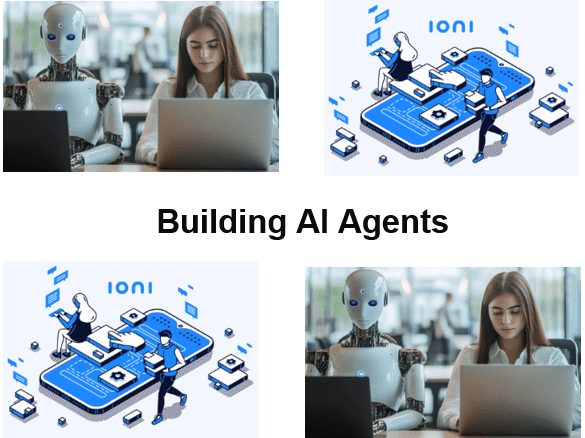- Leren door doen
- Trainers met praktijkervaring
- Klassikale trainingen
- Gedetailleerd cursusmateriaal
- Duidelijke inhoudsbeschrijving
- Maatwerk inhoud mogelijk
- Trainingen die doorgaan
- Kleine groepen
Architecting AI agents with memory, tools, and autonomy using LLMs.
Cursusoverzicht
Deze praktische cursus van 2 dagen biedt een diepgaand begrip van GitLab CI/CD, een krachtige tool voor het automatiseren van softwarebuilds, -tests en -implementaties. Deelnemers leren hoe ze CI/CD-pipelines in GitLab kunnen instellen, configureren en optimaliseren om de efficiëntie van softwarelevering te verbeteren.
Aan het einde van de cursus kunnen deelnemers:
• GitLab CI/CD-architectuur en -concepten begrijpen
• CI/CD-pipelines maken met .gitlab-ci.yml
• Continue integratie en leveringsbest practices implementeren
• Builds, testen en implementaties automatiseren
• GitLab CI/CD integreren met Docker, Kubernetes en cloudplatforms
• Beveiligings- en nalevingscontroles implementeren in pipelines
De cursus AI Agents Bouwen is bedoeld voor developers, data scientists en AI-professionals die willen leren hoe ze autonome agents kunnen ontwerpen met large language models.
Voor deelname aan deze cursus is basiskennis van programmeren in Python en machine learning-concepten vereist. Bekendheid met API’s en prompt engineering is een pluspunt.
De cursus wordt gegeven onder begeleiding van een trainer en combineert theorie en oefeningen. Praktijkvoorbeelden en casestudy’s worden gebruikt om de stof te verduidelijken.
Na succesvolle afronding van de cursus ontvangen deelnemers een certificaat van deelname aan AI Agents Bouwen.

Module 1: Intro AI Agents |
Module 2: LangChain Fundamentals |
Module 3: Building First Agent |
|
What is an AI agent? Core components Autonomy and decision-making Agents vs chatbots Key frameworks (LangChain, Auto-GPT) LLMs as reasoning engines Tools and APIs Role of memory Agent use cases Challenges and risks |
LangChain architecture Chains and agents Prompts and templates Tool integrations Document loaders Memory modules Output parsers Streaming output Agent executors LangSmith for debugging |
Choosing an LLM Defining goals and actions Using tools (search, calculator) Writing prompts for agents Handling errors and retries Adding personality Managing state and memory Multi-step tasks Logging and monitoring Sandbox environments |
Module 4: Multi-Agent Systems |
Module 5: Agent Use Cases |
Module 6: Future of AI Agents |
|
Collaboration between agents CrewAI and Autogen overview Roles and responsibilities Message passing between agents Task decomposition Goal refinement Monitoring progress Conflict resolution Complex workflows Evaluation strategies |
Coding assistant Research assistant Personal finance agent Enterprise task agent AI bots for customer support Integrating with Slack/Teams Running on the web Continuous learning agents Logging and analytics Measuring impact |
Self-improving agents Memory evolution Real-time environment sensing AI decision making Simulated personalities Ethics and control Guardrails and safety Regulation implications Agent marketplaces Agent + human collaboration |
